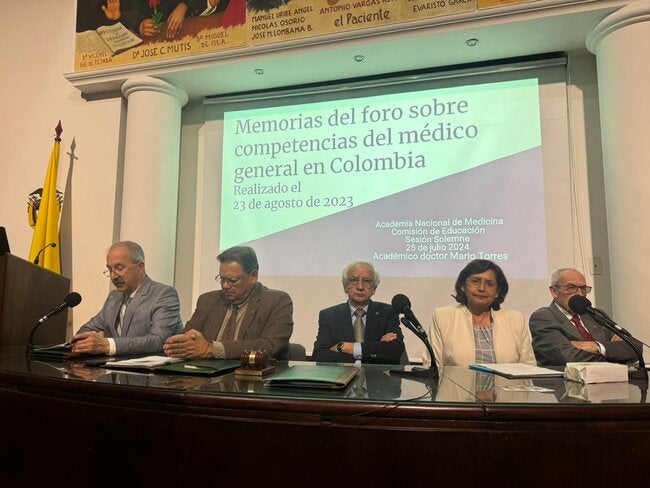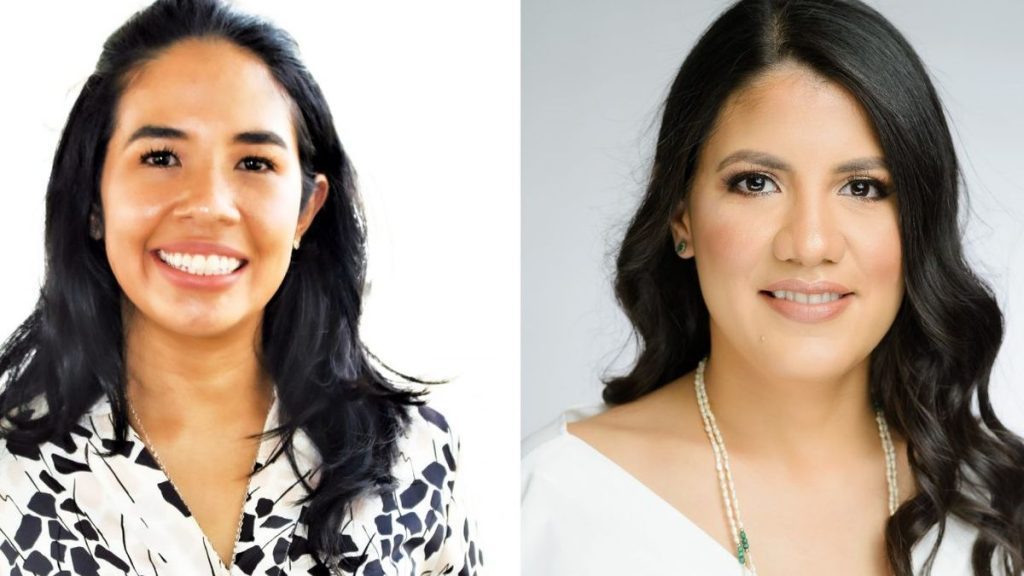The Dr. Giselle Esther Guerra-Savala researcher at the Hydraulic and Hydrological Research Center UTPa member of the National Research System (SNI) and a researcher associated with the Coiba AIP, was the winner for her project “Estimation of Coastal Erosion in Ecosystems and Human Settlements at Risk in Baretta Bay”.
The Dr.. Jasmine Lisbeth MacVergaraa researcher at the Materials Testing Laboratory of the Experimental Engineering Center – Microstructure and Environmental Efficiency Laboratory of UTP, won the project “Evaluation of Water Quality for Human Consumption Including Non-Traditional Standards by Mobile Laboratory with Advanced Analytics Techniques”.
The L’Oréal-UNESCO National Prize for Women in Science originates from the L’Oréal-UNESCO International Women in Science Programme, which has rewarded the work of more than 1,700 women scientists from 108 countries.
In this sixth edition, 10 winners have been selected from Central America and the Andean region, 6 from Colombia, 2 from Peru and 2 from Panama, respectively. With today’s announcement, eight researchers in various fields of science have been honored in Panama.
This initiative is supported by Senacyt, through the Directorate of Scientific Research and Technological Development (R + D), and seeks to promote the development of women whose work and studies are dedicated to science.
Dr. Eduardo Ortega Parrilla, National Secretary of the Senate, stated:
Alberto Mario Rincon, Director of L’Oréal Central America and Andean Region, said:
Award winning
Dr. Giselle Guerra holds a PhD in Philosophy with a major in Coastal Engineering and Oceanography from the University of Florida, US (2019), and a Master of Science in Coastal and Oceanographic Engineering from the University of Florida. in Panama (2012), and a degree in Environmental Engineering from the Technological University of Panama (2009). She is a part-time instructor for undergraduate and postgraduate courses and a researcher at the Hydraulics and Hydrotechnical Research Center at UTP, as well as a researcher associated with the Coiba AIP.
He is a member of the National Research System (SNI) in the Senior National Researcher category. His research lines include: environmental engineering, saltwater intrusion mitigation, physical oceanography and sustainable coastal development.
The goal of his project “Estimation of Coastal Erosion in Vulnerable Ecosystems and Human Settlements in Barita Bay” is to include another study site in the already established monitoring plan within another previous project, funded by Senacyt, titled “Estimation of Erosion in the Pacific Coast of Panama.”
Barita Bay, located on the Pacific coast of Panama, has seen notable setbacks in its coastline in the past 20 years. It is also the second most important area for migratory shorebirds in Panama, after the Gulf of Panama.
Another aspect that needs to be highlighted is that Parita Bay is highly vulnerable to climate change and is one of the most vulnerable areas to sea level rise in the Pacific Ocean of Panama. This rise in sea level supports erosion processes on the coast. Then coastal erosion limits economic activities, reduces the natural protection of the coast (mangrove forests, sand dunes, sandy beaches) and generates pressures on coastal human settlements.
The overall goal of Dr. Guerra’s research is to estimate the rate of erosion in coastal communities within Baretta Bay, and its scope seeks to demonstrate that coastlines are one of the most dynamic environments on Earth, and its changes are linked to natural processes and human activities.
The Dr.. Jasmine Mac He received his Doctor of Science degree in Civil Engineering program from the University of São Paulo (2019), a Master’s degree in Higher Education from ISAE University (2019) and a Postgraduate Degree in Engineering with a specialization in Environment from the Technological University of Panama (2013), with a degree in Civil Engineering, at UTP (2011).
She is a part-time professor in the School of Civil Engineering, and a full-time researcher in the Materials Testing Laboratory of the Center for Experimental Engineering – Laboratory of Microstructure and Environmental Competence – at UTP.
The research project for which Dr. Mac was awarded the L’Oréal-UNESCO National Award for “Women in Science” 2022 is titled “Evaluation of Water Quality for Human Consumption Including Non-Traditional Criteria by Mobile Laboratory with Advanced Analytical Techniques” in the field of science.
The objective of this proposal is to enhance the mobile water quality laboratory of the “Morbidity vs. Water Quality for Human Consumption in Tunisia: A Pilot Study” project with supplies and accessories needed for water quality assessment, including identification and quantification of non-traditional parameters such as heavy metals and pesticides, in remote areas, With advanced instrumental analytical techniques and operated by qualified technical staff.
Initially, the project is implemented in areas where agricultural and livestock activities are an important part of their economic development, such as Tonosí and Los Santos. However, the mobile laboratory is available to serve other regions and environmental emergencies.

“Social media evangelist. Student. Reader. Troublemaker. Typical introvert.”

:quality(85)/cloudfront-us-east-1.images.arcpublishing.com/infobae/TR43PX4FQRCGJOYTK6DVVHHXGE.jpg)




More Stories
National Academy of Medicine and PAHO present reports of the Colombia General Physician Competency Forum – PAHO/WHO
Academic excellence in medical sciences is recognized at Granma.
Medical simulation has revolutionized the training of doctors in the country.